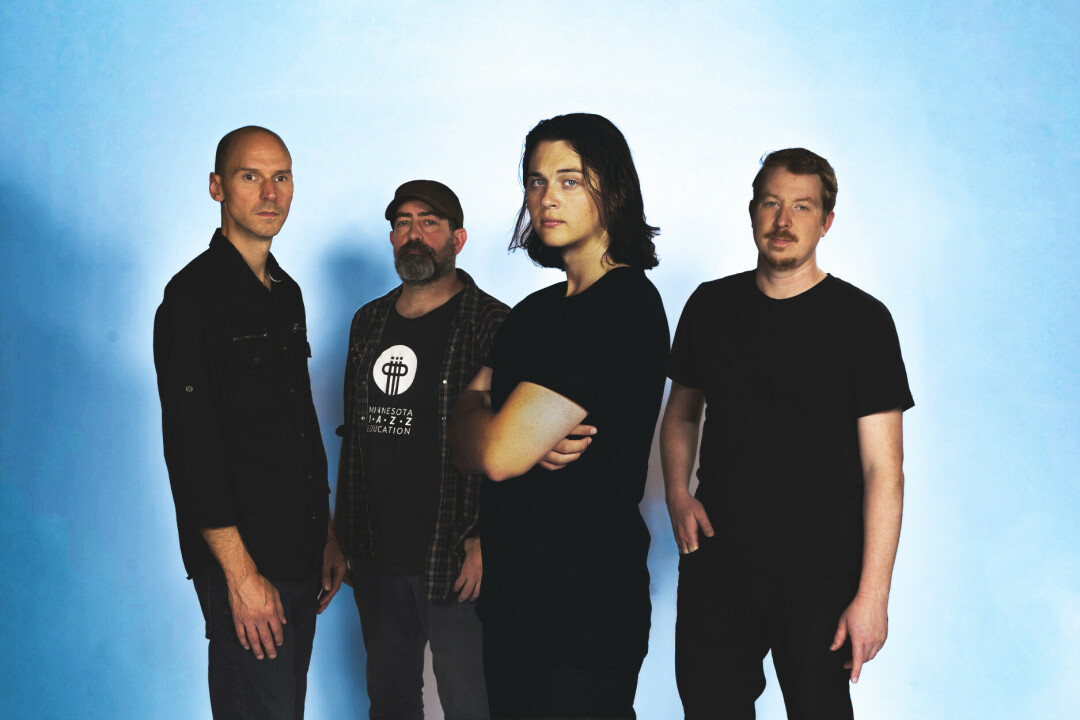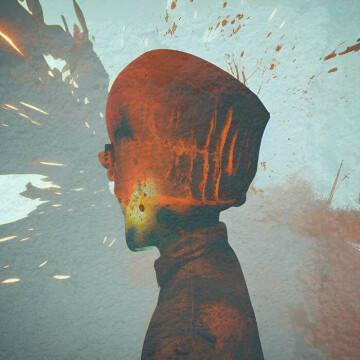News & Articles
Browse all content by date.

Sigcell, from left: Peter Wannemacher, Sam Keenan, Ben Stein, Andrew Munsch.
Sigcell is a Twin Cities band that occasionally pops up to do something extraordinary, then seemingly vanishes again to attend to things like “house, marriage, kids,” as lead singer/songwriter Peter Wannemacher told the Reader in 2019. “Because we all know writing and playing music is an addiction, not a job.”
One suspects that in between appearances, Wannemacher is poking his head into wormholes to check out the cosmos and bringing back part of what he’s seen.

Their first album, 2005’s The Poet, was a combination of grunge and progressive rock, with distorted guitar and a lush, ethereal sound – an introspective sonic onslaught. Their latest, Transhuman, is more stripped down, basic rock n’ roll, but executed with such precision and intricacy that it has a sci-fi quality. Hence the title, Transhuman, and the cover that looks like an alien from Outer Limits, are entirely appropriate.
This is only the band’s third album in 18 years, really the second since 2019’s country-western-esque Pile of Ghosts is a five-song EP. This new album is not much longer with seven tracks, but the passage of time doesn’t seem wasted.
A lot of gestation went into this. The band now has two original members, lead singer/songwriter Peter Wannamacher and lead guitarist Andrew Munsch. Bassist Sam Keenan and drummer Ben Stein are the relatively new (as of 2015) additions and they provide clarity to the fuzz.
The classic Sigcell sound is evident, spooky yet intense. The songs are tricky with multiple choruses, bridges and movements and jolting shifts in rhythm and chord progression, but always maintaining the forward charge. It can shift gears from jazzy to hard rock, from guitar-driven to piano-driven. It can be reminiscent of Rush at one point, King Crimson another and next, The Pixies. But it’s always, recognizably their own.
The lyrics are cerebral and ambiguous, evoking images and feelings: “Blinded by Occam’s Razor, it seems, now you’re killing us all.” Or, “The zoo humans have now spiked the wine / Easier to see when you stand aside / Watching while they stumble over noble lies.” What it all means is up to the listener.
The most accessible is “Gorgeous,” which seems like your basic break-up song. (“You feel that you’re drifting, then drift the other way.”) Yet it’s also a rumination on time, which it repeatedly references. (“All of the years and the months and the days / You tied me down in velvet and lit me up in flames.”)
Notably, one of the tracks is a remake of the title cut from the band’s first album, The Poet. My first reaction was “sacrilege!” since the original is canon – dreamlike, orchestral and majestic with drums like rolling thunder – and doesn’t need a remake. But it’s a useful gauge as to how the band has evolved. This new version has pounding, repetitive guitar chords that bring to mind The Cranberries’ “Zombie."
Again, the lyrics to “The Poet” repeatedly reference time (“Before I’m out of time, not this time / And time has always been afraid to stand / Still and let me be what I really am”) which may be why Wannemacher chose to remake it nearly two decades later. Timelessness is the essence of Sigcell’s work, which evokes the feeling that the passage of years means little once we find our voice.
| Tweet |


